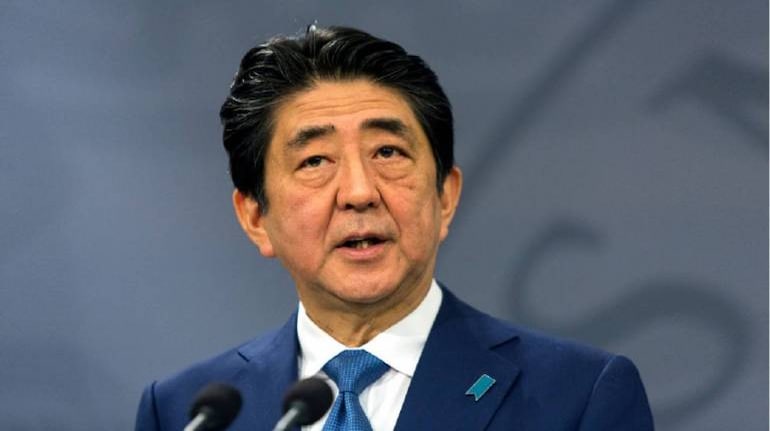



Around 500 Japanese business leaders will accompany Prime Minister Shinzo Abe when he visits Beijing this week, amid an ongoing China-U.S. trade feud that is hurting industries on both sides.
A Japanese government official speaking Monday on routine condition of anonymity said Abe's three-day visit starting Thursday will mark a further step in returning bilateral relations to a "normal trajectory" following a 2012 spat over ownership of uninhabited East China Sea islands.
China is Japan's biggest trade partner and that relationship has taken on added importance following President Donald Trump's decision to raise tariffs on $250 billion of Chinese goods. Beijing responded with its own tariff hikes on $110 billion of American imports.
The official said North Korea will also be among the issues the two leaders discuss. China is the North's most important ally, but has enforced economic sanctions imposed by the United Nations Security Council aimed at forcing Pyongyang to end its nuclear weapons program and ballistic missile tests.
The official said Japan also wants North Korea to address the issue of Japanese citizens it is suspected of abducting as a condition for improving relations with Tokyo.
He said China and Japan were in agreement on the need to keep pressure on North Korea, including strict limits on fuel imports that ban transfers between ships at sea that are a method of evading sanctions.
While Abe visited China in 2016 to attend the Asia-Pacific Economic Cooperation summit in Beijing, this week's visit will be the first formal one by a Japanese prime minister in seven years.
High-level exchanges were frozen in 2012 after Japan nationalized the islands claimed by Beijing, setting off violent protests in China.
That caused tourism and investment in China by Japanese companies to nosedive, and Chinese coast guard vessels continue to make regular incursions into Japanese waters around the islands.
The improvement in relations was marked by a May visit to Japan by Chinese Premier Li Keqiang, the ruling Communist Party's second-ranking official. President and party leader Xi Jinping is also expected to visit Japan at a future date.
The Japanese official said the sides were considering cooperation on infrastructure and other economic projects in third countries, possibly including Thailand. Japanese trade with China runs to about $300 billion per year, as opposed to $200 billion with the US and Japanese companies from carmakers to food processors are major players in the Chinese market.
While the official said Japanese firms share their European and American counterparts concerns about Chinese trade and technology practices, he said Tokyo prefers to pursue dialogue and engagement with Beijing rather than hiking tariffs as Trump has.
The Trump administration imposed tariffs this year on imports of steel and aluminum from Japan among other countries, and is also threatening tariffs on Japanese autos and auto parts.
Japan's growth is dependent on exports and any slowdown in pan-Pacific trade would hurt sentiment. U.S. tariffs on Chinese goods also affect supply chains and other economic considerations for Japanese companies, the official said.
"We don't want to see U.S.-China trade frictions damage the international system," the official said.
Discover the latest Business News, Sensex, and Nifty updates. Obtain Personal Finance insights, tax queries, and expert opinions on Moneycontrol or download the Moneycontrol App to stay updated!
Find the best of Al News in one place, specially curated for you every weekend.
Stay on top of the latest tech trends and biggest startup news.